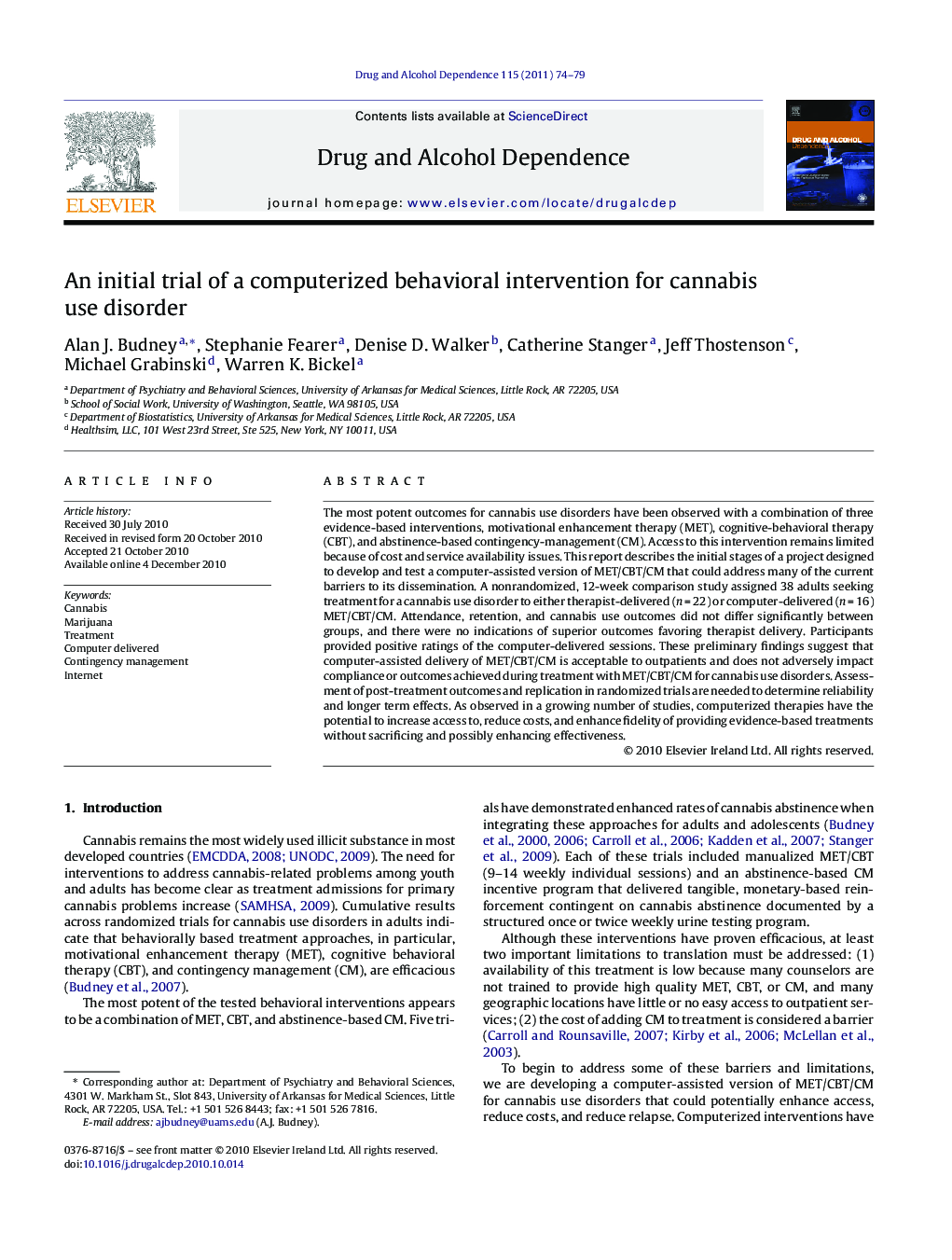| Article ID | Journal | Published Year | Pages | File Type |
|---|---|---|---|---|
| 7509266 | Drug and Alcohol Dependence | 2011 | 6 Pages |
Abstract
The most potent outcomes for cannabis use disorders have been observed with a combination of three evidence-based interventions, motivational enhancement therapy (MET), cognitive-behavioral therapy (CBT), and abstinence-based contingency-management (CM). Access to this intervention remains limited because of cost and service availability issues. This report describes the initial stages of a project designed to develop and test a computer-assisted version of MET/CBT/CM that could address many of the current barriers to its dissemination. A nonrandomized, 12-week comparison study assigned 38 adults seeking treatment for a cannabis use disorder to either therapist-delivered (n = 22) or computer-delivered (n = 16) MET/CBT/CM. Attendance, retention, and cannabis use outcomes did not differ significantly between groups, and there were no indications of superior outcomes favoring therapist delivery. Participants provided positive ratings of the computer-delivered sessions. These preliminary findings suggest that computer-assisted delivery of MET/CBT/CM is acceptable to outpatients and does not adversely impact compliance or outcomes achieved during treatment with MET/CBT/CM for cannabis use disorders. Assessment of post-treatment outcomes and replication in randomized trials are needed to determine reliability and longer term effects. As observed in a growing number of studies, computerized therapies have the potential to increase access to, reduce costs, and enhance fidelity of providing evidence-based treatments without sacrificing and possibly enhancing effectiveness.
Related Topics
Life Sciences
Neuroscience
Behavioral Neuroscience
Authors
Alan J. Budney, Stephanie Fearer, Denise D. Walker, Catherine Stanger, Jeff Thostenson, Michael Grabinski, Warren K. Bickel,
